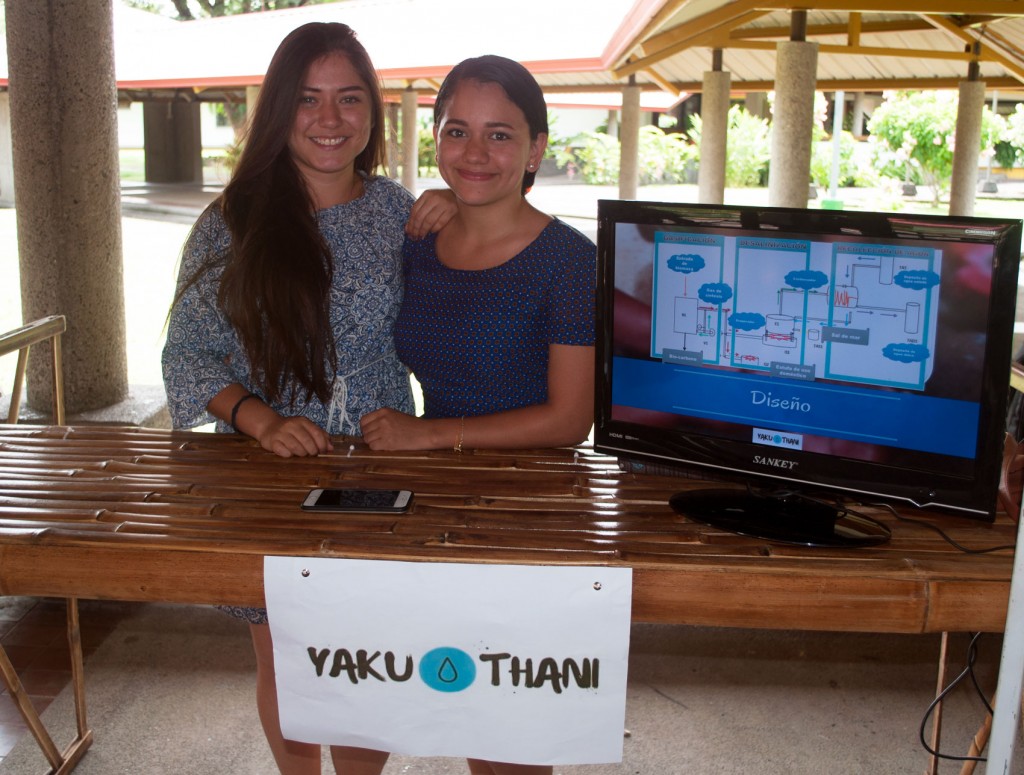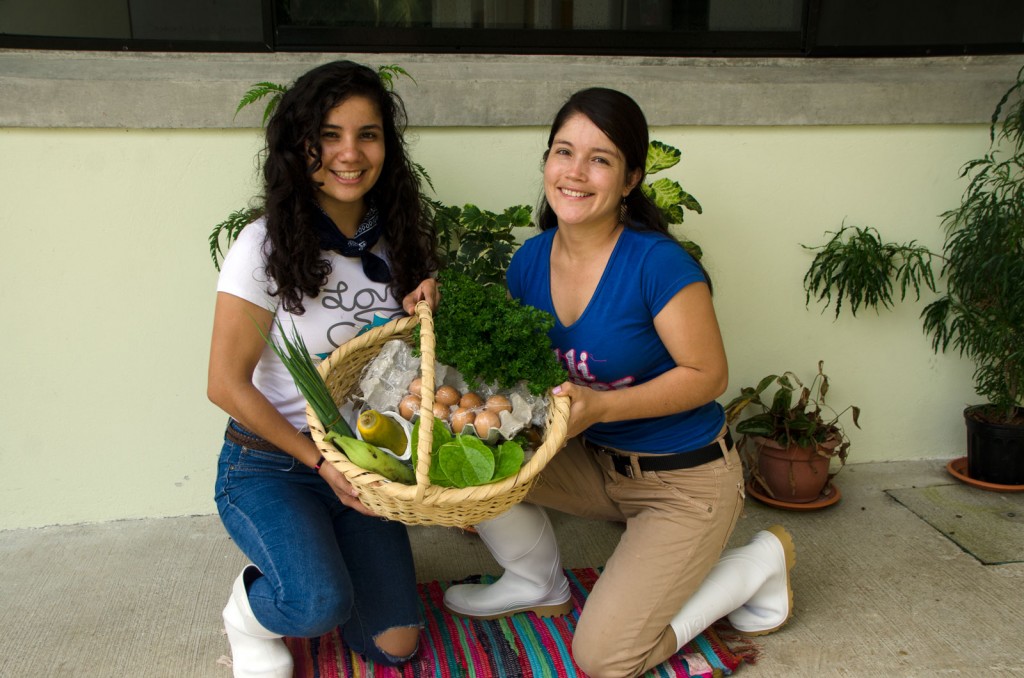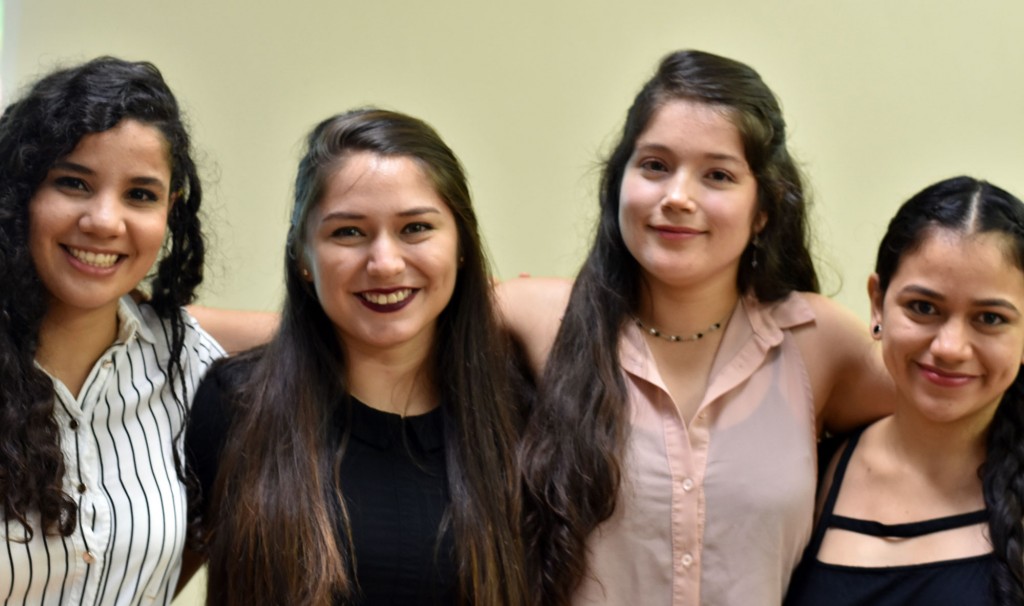Ecuadorian duo win 2017 Sustainability Prize
The project Yaku Thani (“healthy water” in Quechua, an indigenous Andean language) walked away with the 2017 Sustainability Prize – an annual award bestowed by EARTH University and The Sustainability Lab.

Kalem García and Jhoselyn Mendoza, present their project during the campus visit of Sandra Cauffman, a NASA engineer and deputy director, in 2016.
Kalem García (‘17, Ecuador) and Jhoselyn Mendoza (‘17, Ecuador) are the recipients of U.S. $10,000 thanks to their design of a renewable-energy-powered desalinization instrument.
For the duo, the need for the project arose from the devastating 7.8-magnitude earthquake that struck Ecuador on April 16, 2016. Despite being surrounded by ocean, the natural disaster’s survivors were unable to churn out an adequate supply of drinking water.
Kalem and Jhoselyn focused on developing a solution that would be sustainable and easy for the residents of Ecuador’s coastal areas.
Their design generates biomass energy from the gasification of spent coconut fiber. That energy powers a desalination mechanism composed of an evaporator and a condenser, from which potable water is extracted.
In the end, the partners were able to build an instrument that managed to remove 88 percent of the salts from a water sample – powered by nothing more than the fiber of a medium-sized coconut.
“I felt very pleased with our work,” Kalem said. “It gave my brother and mother – who were present at the awards ceremony and saw us win – another reason to be proud.”
Of the $10,000 prize, the girls must apply $1,000 toward the implementation of their project. They plan to replicate Yaku Thani in rural Ecuador.
The runner-up
In second place was Cultivarme (“cultivate me” in Spanish), an equitable agriculture markets project from Johana Carmona (‘17, Colombia) and Carolina Aguilar (‘17, Costa Rica).
The CSA-style project is based on the principle of agriculture by contract, which guarantees a market for small producers. This concept is defined by the United Nations’ FAO as an agreement – between farmers and consumers, and/or processing and marketing companies – for the production and supply of agricultural products for future delivery, often at predetermined prices.
Cultivarme required its consumers – a group of University employees who had signed participation contracts – to make weekly selections through a custom webpage, where the available products were published and sold at fair prices. The goods, sourced from local farmers with whom Carolina and Johana collaborated, were then delivered to the consumers’ homes as an added convenience.
“It was a pilot plan that was evaluated. It’s expected to be reproduced in other places, to serve as a community reintegration project,” Johana said. “In my case, I am working to help the demobilized victims of the armed conflict in Colombia.”
The students shared a U.S. $2,500 prize for their work.
About the Sustainability Prize and The Sustainability Lab
The Sustainability Laboratory is an organization that shares EARTH’s vision of sustainable development.
In 2017, three jurors from outside the University had the task of evaluating the 13 projects competing for the Sustainability Prize, of which two were named finalists.






